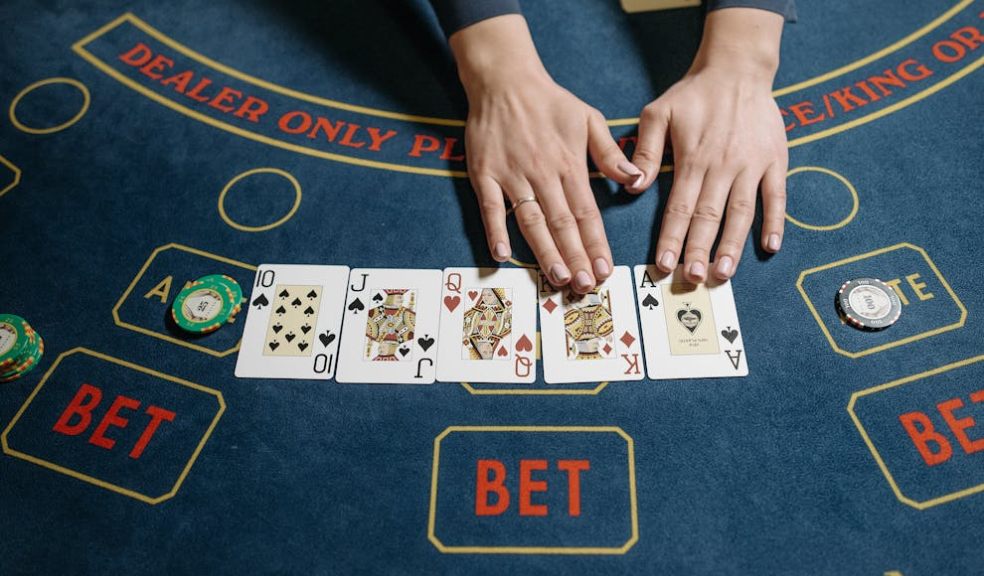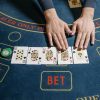
Navigating the language of blackjack – essential terms for new players
Before I knew how to play blackjack, I’d walk around a casino, look at what was happening at the table, listen to the bets, terms and slang – and feel totally lost. Understanding a new casino game is one thing, but knowing how the rules and terminology actually play out in a live gaming environment is another.
Blackjack is a staple of casino gaming; it doesn’t matter if you play at a land-based casino or opt for digital versions on a desktop browser or mobile app. While these platforms attract different types of blackjack players, the vernacular in use is universal, and we’ll dissect it today.
Understanding the basics of blackjack
There’s no point diving into technical terms and language if you don’t have the basics of blackjack under your belt. Unlike other card-based casino classics, such as poker, which requires much more learning and nuance, blackjack is a relatively simple game to understand.
You can get to grips with more specific elements and terms once you gain experience, but the game's foundation is easy to understand. You, the dealer and any other players at the table receive two cards to begin with. Based on that total, you can either choose to hit or stick, or you may also hear this referred to as "stand”.
The goal is to get as close to 21 as possible without exceeding the total. If you do, you go bust. The closer you get to it, the higher your probability of going bust with your next card. This is the game in a nutshell.
Doubling down
Now that we have been through the basics of the game, the first term we will look at today is “doubling down” – when your first two cards add up a grand total of 11 or less, and you can double your bet.
If you have 11 or less, you will have the option to double down, but be advised that you only receive one more card as part of this bet. You can find more detailed information at CasinoMeister on this topic and when to double down in blackjack, but this is the general idea of how it works. If your double-down card is a success and you win the hand, you win double your money.
Split
When the dealer gives you a pair, you can choose to split the hand – if you wish to, it’s optional. You can put the same stake down, similar to a doubling down. So, if you bet £10, your split must also be a £10 bet. If your hands win, you’ll receive double the payout instead of the payout on just one hand, similar to doubling down.
Blackjack insurance
If the dealer pulls an ace as their first card, you can cover your bet if they land a blackjack. Insurance involves half your original betting amount and pays out at 2/1 if the dealer is lucky enough to land 21.
Push
If you and the dealer land the same total, this is basically known as a push or a draw. Nobody wins, nobody loses and your bet remains on the table for the next hand. So, let’s say, for example, that you and the dealer both get 19 – this is a push. The dealer declares it is a push, and your chips remain untouched.
Responsible gambling
Casinos use this term to ensure that blackjack players are gambling sensibly and staying within reasonable time and monetary limits. These limits can vary depending on the type of bank balance somebody works with. As a general rule of thumb, if somebody is betting with money they cannot afford to lose, spending extended periods gambling, or find that their close relationships are suffering, the red flags are waving.
As more businesses move into the digital age, there’s a growing demand for tools and information that focus on providing tailored services for online users. Responsible gambling charities are available online, via email and social media. If you want more assistance from them or more information about what constitutes problem gambling, you can speak to GamCare, GamStop or Gamblers Anonymous.
The shoe
Each blackjack game consists of six decks of cards (usually) – they are shuffled and put in the “shoe”, which is what the dealer draws each card from. Back in the 20th century, card counters would pick out casinos that rarely changed the shoe or shuffled decks, or only used three decks of cards, for instance.
This meant that those people who could card count had a better chance of gaining an edge on the casino. Gambling companies quickly cottoned on to this fact and changed it up accordingly. There are, however, some famous examples, such as the MIT team of the late 20th century, who were able to tilt the odds in their favour – so much so that their exploits were turned into a film in 2008.
Stories like this have resulted in casinos and dealers shifting tables often, bringing in random shuffles for each shoe. Online blackjack has removed the potential for card counting, using entirely digital decks that select cards at random.
Conclusion
While it’s important to learn and navigate the language of blackjack, in-game experience can also be a great way to learn. We’re not saying you should go and sit and play blackjack without having a good idea of the game, but you can seek out games online to see how blackjack unfolds in a live environment, and how dealers and players incorporate some of the terms we’ve touched on today.
As with so many other games, experience stems from knowledge. Understanding the language and terms is the first step to becoming competent at blackjack.














